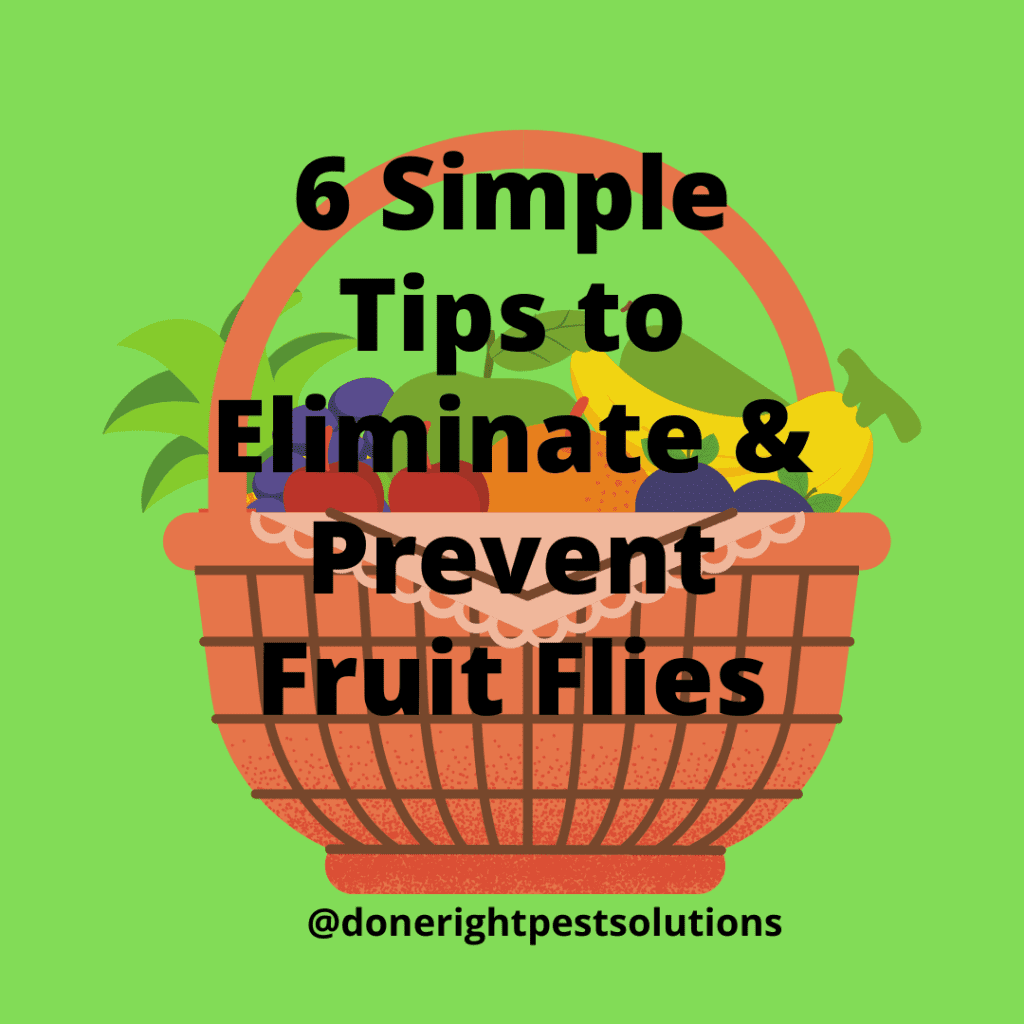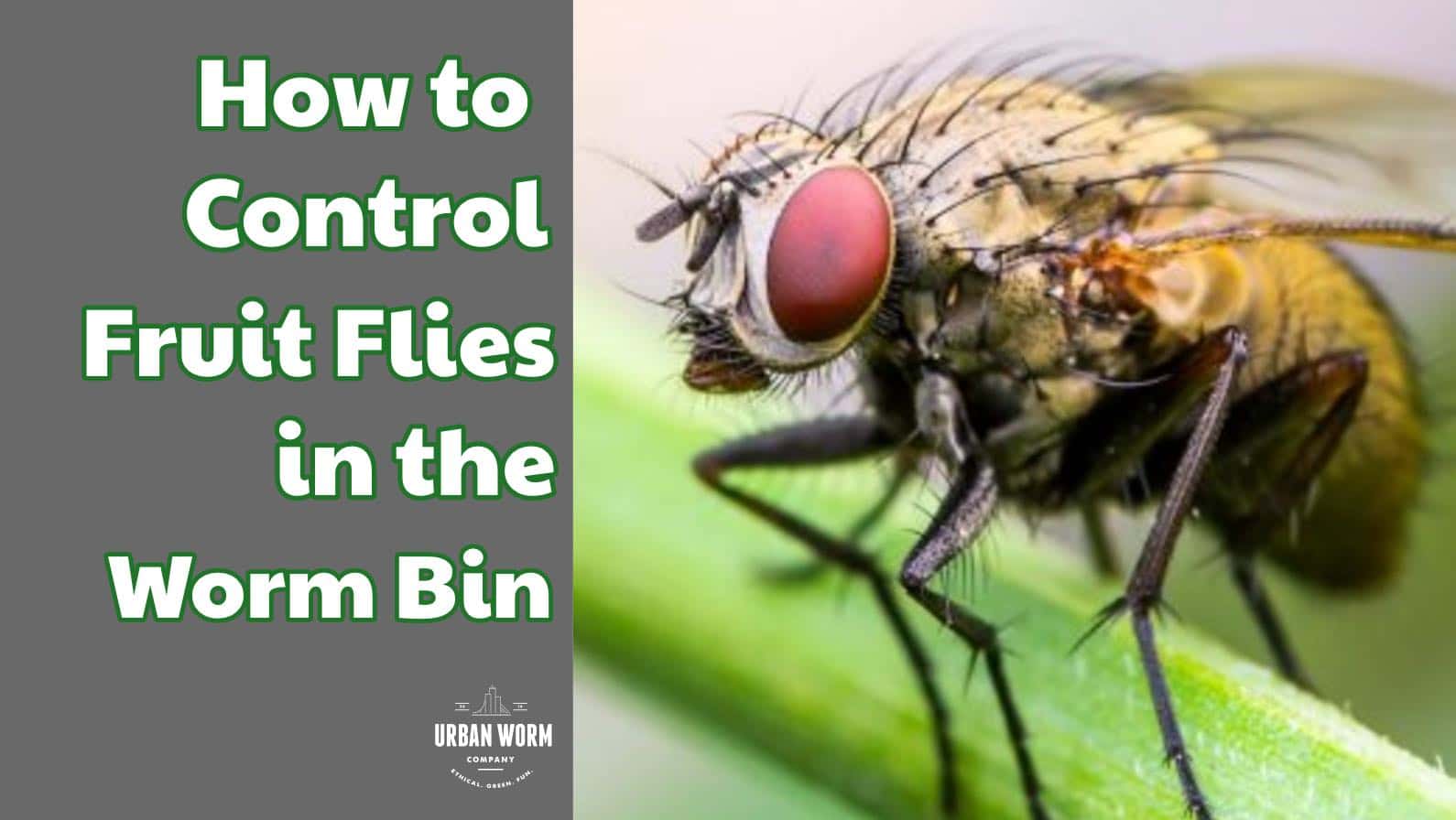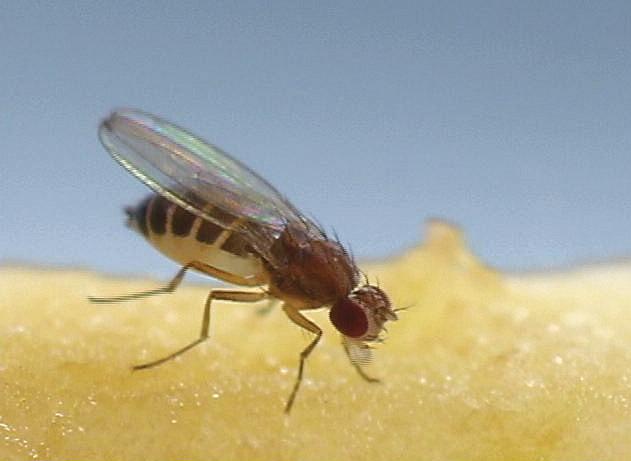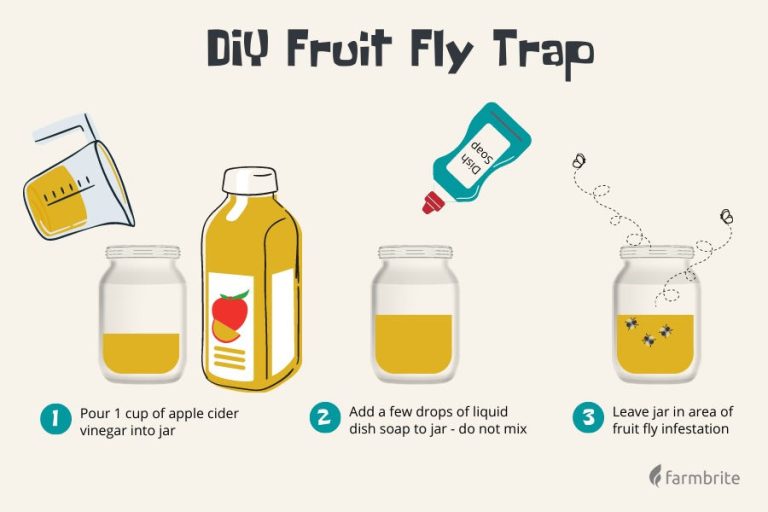Imagine walking into your kitchen and spotting tiny fruit flies buzzing around your fresh produce. It’s frustrating, isn’t it?
These pesky invaders can quickly ruin the joy of enjoying your favorite fruits. But what if you could stop them before they even appear? In this guide, you’ll discover simple yet effective strategies to keep your kitchen free from fruit flies.
We’ll share practical tips that you can implement today to protect your fruits and maintain a clean, fly-free home. Read on to learn how to reclaim your space and enjoy your fruits without worry.
Fruit Fly Basics
Fruit flies are tiny but mighty nuisances that can invade your kitchen and make life a bit sticky. Understanding the basics of these pesky critters is the first step in keeping them at bay. Once you know their lifecycle, habits, and favorite fruits, you can take effective measures to prevent an infestation. Let’s dive into the essentials of fruit fly management.
Lifecycle And Habits
Fruit flies have a rapid lifecycle, making them hard to control once they start multiplying. A female fruit fly can lay up to 500 eggs at a time on the surface of ripe or rotting fruits. These eggs hatch within 24 hours, and the larvae begin to feast on the fruit.
Within a week, larvae mature into adult flies, ready to reproduce. Knowing this quick cycle helps you act fast when you spot fruit flies. Keep your kitchen clean and dispose of overripe fruits promptly to prevent them from breeding.
Fruit flies are attracted to the smell of fermenting produce. They often gather near garbage bins, drains, and damp dishcloths. Regular cleaning of these areas can reduce their nesting sites. Have you noticed fruit flies hovering around your sink or trash can?
Common Vulnerable Fruits
Fruits with a high sugar content are prime targets for fruit flies. Bananas, tomatoes, and mangoes are just a few examples. These fruits release a sweet scent that attracts flies when they start to ripen.
Store these fruits in the fridge to keep them fresh and out of reach from flies. A personal trick is to cover fruit bowls with mesh covers, which allows air circulation but keeps flies away. Have you ever tried storing your fruits differently to see if it makes a difference?
Even vegetables like onions and potatoes can attract fruit flies if they start to rot. Check your pantry regularly for any signs of spoilage. How often do you inspect your produce for freshness?
Preventing fruit fly infestation requires vigilance and quick action. By understanding their lifecycle and habits, and knowing which fruits are most vulnerable, you can effectively protect your kitchen from these tiny invaders. What steps will you take today to keep fruit flies out of your home?

Credit: donerightpestsolutions.com
Signs Of Infestation
Fruit flies can invade homes quickly and easily. Recognizing the signs of infestation is crucial. Early detection helps prevent larger problems. Understand the common indicators of fruit fly presence. This knowledge can save your fruits and sanity.
Visual Indicators
Spotting adult fruit flies is a clear sign. They hover around ripe or rotting fruits. These flies are small, about 3-4 millimeters long. Their bodies are tan with red eyes. Sometimes, you may notice larvae or eggs on fruits. They resemble small white maggots.
Behavioral Changes In Fruits
Fruits infested by flies show distinct changes. They ripen and rot faster than usual. Soft spots and blemishes appear on the skin. You might notice a fermented smell around the fruits. Infested fruits attract more flies, worsening the problem.
Prevention Strategies
Keep fruit flies away by regularly cleaning your kitchen and storing ripe fruits in the refrigerator. Use airtight containers for leftovers. Dispose of garbage daily to eliminate breeding grounds.
Dealing with fruit flies can be a real headache. They seem to come out of nowhere, turning your kitchen into their personal playground. However, you can take simple steps to keep them at bay. Prevention is key. By adopting a few smart strategies, you can enjoy a fruit fly-free home. Let’s dive into some effective prevention strategies.Proper Storage Techniques
Store fruits and vegetables in the fridge whenever possible. This simple step keeps produce fresh longer and deters fruit flies. For items that can’t go in the fridge, use sealed containers or mesh covers. This limits access and reduces the risk of infestation. Have you ever left a bowl of apples on the counter, only to find flies circling a day later? Consider storing them in a cool, dry pantry instead. This change might be all it takes to keep those pesky flies away.Regular Cleaning Practices
Regular cleaning is your best defense against fruit flies. Wipe down kitchen surfaces daily to remove spills and crumbs. These remnants might seem small but are a feast for fruit flies. Don’t forget the sink and drains. Fruit flies love to breed in damp areas with leftover food bits. Pour boiling water or use a natural cleaner to keep these areas clean and uninviting. Take a moment to inspect your trash cans. Are they tightly sealed? Empty them regularly, especially if you’ve tossed fruit peels or cores. Have you noticed how quickly things pile up when life gets busy? Make a habit of decluttering your kitchen weekly. This proactive step will ensure fruit flies don’t find a welcome home. By keeping up with these simple habits, you can effectively prevent fruit fly infestations. Have you tried any of these strategies? What worked best for you?
Credit: urbanwormcompany.com
Natural Deterrents
Banishing fruit flies can be simple with natural deterrents. Utilize vinegar traps to catch and eliminate these pesky insects. Fresh herbs like basil and mint act as repellents, discouraging fruit flies from invading your space.
Natural deterrents offer a safe and eco-friendly way to keep those pesky fruit flies at bay. If you’ve ever found yourself swatting at these tiny nuisances, you’ll be glad to know there are simple solutions right in your home. Let’s dive into some effective strategies that harness the power of nature to protect your fruit basket.Herbal Solutions
Did you know certain herbs are natural fruit fly repellents? Basil, mint, and lavender are more than just kitchen staples. Their strong scents are a turn-off for fruit flies. Place small pots of these herbs near your fruit bowl. Not only will they keep the flies away, but they’ll also add a lovely aroma to your kitchen. You can also dry these herbs and hang them around your kitchen. It’s a simple way to add both charm and protection to your space.Diy Traps
Creating your own fruit fly trap is easier than you might think. All you need is a jar, some apple cider vinegar, and plastic wrap. Fill the jar with an inch of apple cider vinegar. Cover the top with plastic wrap and poke a few small holes. Fruit flies are attracted to the vinegar but can’t escape the jar once inside. This method is effective and surprisingly satisfying to watch. You could also try using a piece of overripe fruit as bait. Place it in a bowl, cover with plastic wrap, and pierce small holes. Sometimes, the simplest solutions are the most effective. Have you tried any of these methods before? What worked best for you? Let us know in the comments!Chemical Solutions
Fruit fly infestations can be a real headache. Chemical solutions offer an effective way to tackle these pests. Choosing the right product ensures safety and effectiveness. Understanding the proper application techniques is crucial. Let’s explore how you can use chemical solutions to keep fruit flies at bay.
Safe Pesticides
Safety is the top priority. Select pesticides that are safe for indoor use. Look for products with low toxicity. Read labels carefully for ingredients. Choose those approved by relevant authorities. These ensure minimal risk to humans and pets. Store pesticides away from food and children.
Application Techniques
Correct application is key to effectiveness. Follow instructions on the pesticide label. Use spray bottles for precise application. Apply during early morning or late evening. This is when flies are less active. Focus on areas with high fruit fly activity. Kitchen counters and fruit bowls are common spots. Ensure good ventilation during application.
Reapply as needed based on instructions. Regular checks help maintain effectiveness. Proper storage and handling are essential. This prevents accidents and ensures longevity.

Credit: www.orkin.com
Long-term Control Measures
Preventing fruit fly infestations requires consistent efforts. Long-term measures help maintain a pest-free environment. These strategies focus on sustainable and effective solutions. They aim to reduce fruit fly populations over time. Implementing these measures can ensure a healthy and productive garden.
Integrated Pest Management
Integrated Pest Management (IPM) blends various control methods. It combines biological, cultural, and chemical tactics. This approach minimizes harm to the environment. Use natural predators like parasitic wasps. They help control fruit fly populations. Adopt cultural practices like crop rotation. This disrupts the fruit fly life cycle. If needed, use pesticides with caution. Choose ones that target fruit flies specifically. Ensure they are safe for beneficial insects.
Monitoring And Maintenance
Regular monitoring detects fruit fly presence early. Set traps around your garden. They can capture adult fruit flies. Use yellow sticky traps. They attract and capture flies effectively. Check these traps frequently. Assess infestation levels based on trap counts. Maintain cleanliness in the garden. Remove overripe or fallen fruits promptly. This reduces breeding sites for fruit flies. Keep compost bins covered and secure. This prevents fruit flies from laying eggs there.
Frequently Asked Questions
How To Stop A Fruit Fly Infestation?
Eliminate fruit flies by cleaning surfaces and removing overripe fruits. Use vinegar traps to catch them. Seal garbage tightly and clean drains regularly. Maintain a clean kitchen to prevent re-infestation.
Why Do I Suddenly Have So Many Fruit Flies?
Fruit flies breed quickly in warm environments with exposed fruits or vegetables. Overripe produce, spills, or trash can attract them. Check for unnoticed breeding sites, like drains or garbage disposals. Cleaning and removing food sources helps reduce their numbers. Seal food in airtight containers to prevent further infestations.
How Long Does A Fruit Fly Infestation Last?
A fruit fly infestation can last a few days to several weeks. It depends on control measures. Removing food sources and cleaning can speed up elimination. Regular maintenance helps prevent future infestations.
What Do Fruit Flies Hate The Most?
Fruit flies hate strong odors like vinegar, basil, peppermint, and lemongrass. Keeping these scents around deters them effectively. Ensure your kitchen is clean and dry, removing food scraps promptly. Use essential oils or herbs to repel them naturally and keep your space fruit fly-free.
Conclusion
Tackling fruit flies can seem daunting, but it’s manageable. Start by keeping your kitchen clean. Dispose of rotting fruits quickly. Use traps if needed. Seal garbage bins tightly. Regularly check and clean drains. Simple steps make a big difference. Keep an eye on potential breeding spots.
Prevention is easier than dealing with infestations. Stay consistent with your efforts. You’ll enjoy a fruit-fly-free home. Protect your produce and enjoy fresh fruits. Happy, fly-free living is possible with diligence. Remember, small actions lead to great results. Stay proactive, and your home will remain pest-free.


